This content originally appeared on The Intercept and was authored by The Intercept.
This post was originally published on Radio Free.
This content originally appeared on The Intercept and was authored by The Intercept.
This post was originally published on Radio Free.
JAKARTA, BANGKOK, KUALA LUMPUR and MANILA — Southeast Asia is greeting Donald Trump’s return to the White House with a mix of hope and hesitation as he embarks on his second term as U.S. president.
Trump took the oath of office on Monday inside the Capitol after the ceremony was moved indoors because of weather reports that a polar vortex would bring frigid temperatures to the nation’s capital.
Even as regional leaders anticipate greater engagement with the United States, a controversial moment involving his defense secretary nominee, Pete Hegseth, has raised concerns about how the administration will treat relations with the Association of Southeast Asian Nations, or ASEAN.
Hegseth, a former Army National Guard officer and television commentator, was unable to name ASEAN member states or identify the bloc’s size during his confirmation hearing last week, drawing criticism both in Washington and across Southeast Asia.
“He doesn’t understand that the Defense Department’s work in the South China Sea, where the U.S. plays a major role, involves many ASEAN countries,” Isa Gharti, a public policy researcher at Chiang Mai University in Thailand, told RFA affiliate BenarNews. “This lack of understanding could bring problems to ASEAN countries in the long term.”
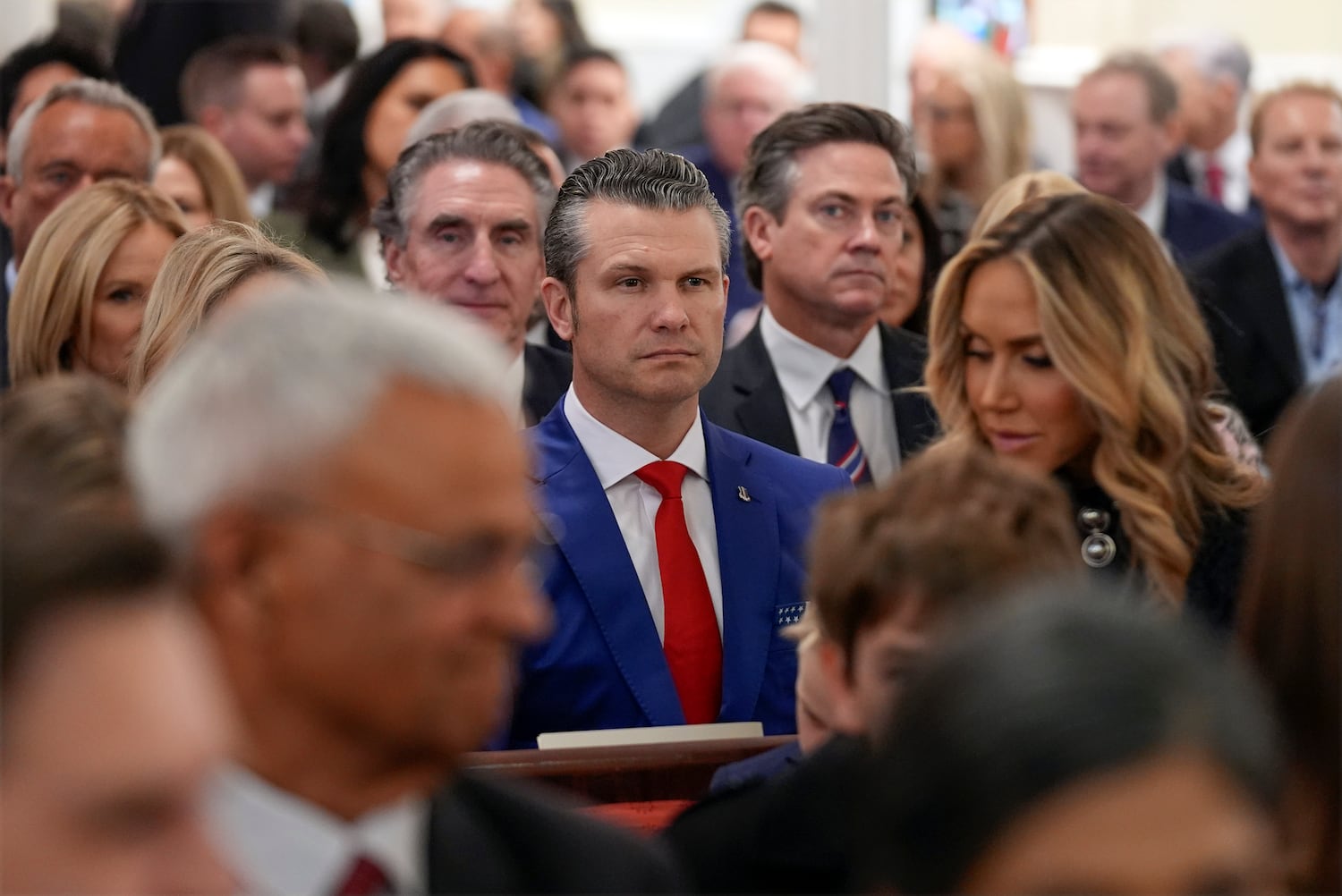
ASEAN has been central to Washington’s strategy in the Indo-Pacific. The bloc, which includes Indonesia, Malaysia, Vietnam and Singapore among its 10 members, represents more than 680 million people and collectively forms the world’s fifth-largest economy.
The United States counts two other ASEAN nations, Thailand and the Philippines, as treaty allies and has sought to deepen ties with the group to counter China’s growing influence in the region. The U.S. military has access to nine Philippine bases.
China has made significant inroads in Southeast Asia, investing in infrastructure projects and using its economic clout to build partnerships. The South China Sea, where Beijing’s territorial claims overlap with those of several ASEAN nations, remains a key flashpoint in the region.
RELATED STORIES
Asia sends top officials to Trump inauguration amid concern over trade, security
Rubio to lobby Thailand not to deport detained Uyghurs to China
Is Southeast Asia ready for the abrupt changes Trump could usher in?
While Hegseth fumbled in responding to questions from Sen. Tammy Duckworth, who was born in Bangkok and injured in combat while serving in the U.S. military, regional leaders have expressed optimism about U.S. engagement under Trump’s leadership.
Indonesian President Prabowo Subianto has congratulated Trump on his victory and expressed his desire for a personal meeting.
Malaysian Prime Minister Anwar Ibrahim hailed Trump’s election a “remarkable political comeback” and voiced optimism about the potential for a deeper partnership with the United States.
Raden Mokhamad Luthfi, a defense analyst at Universitas Al Azhar Indonesia, said he is skeptical about future defense relations between the United States and Indonesia, the world’s largest Muslim-majority country, citing what he described as Hegseth’s and Trump’s unfavorable views of Muslims.
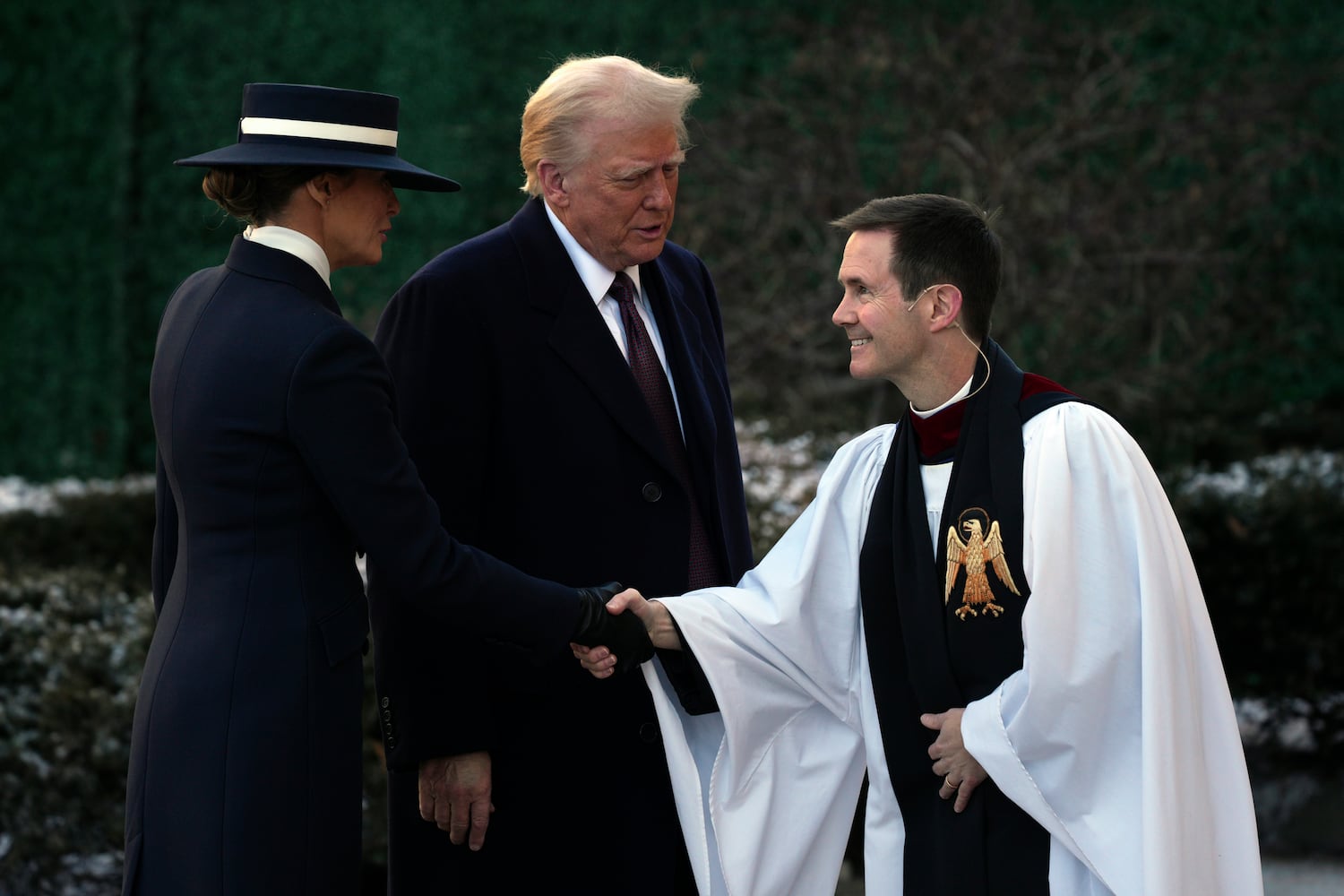
Cristina Palabay, secretary general of the Philippine rights group Karapatan, accused Washington of using allies including the Philippines to further its strategic goals.
“Trump’s hostility toward China certainly matches, if not surpasses, that of Biden,” Palabay said.
In Bangkok, Phumtham Wechayachai, Thai deputy prime minister and defense minister, struck a cautious tone.
“After Trump’s inauguration as U.S. president, we need to see what adjustments may be needed,” Phumtham told reporters. “Overall, the foundation of U.S.-Thai relations is already good. We will consider any proposals according to Thai principles and make any adjustments that benefit the nation.”
Other analysts suggested that Hegseth’s misstep might not significantly impact U.S. engagement with the region.
“It would be folly to assume that just because the secretary of defense may not be familiar with ASEAN, that is tantamount to weaker U.S. engagement,” said Julio Amador, a geopolitical analyst based in Manila. “The Pentagon is a huge bureaucracy and Hegseth’s deputies are well-versed in the geopolitics of the Indo-Pacific.”
Muhammad Waffaa Kharisma, a researcher at the Centre for Strategic and International Studies in Jakarta, argued that ASEAN is not strategically significant to the United States.
“Perhaps some ASEAN member states are, but ASEAN as an institution isn’t, especially in an era when enthusiasm for multilateral organizations has waned,” Waffaa told BenarNews.
He added that Trump’s first term as president was “not particularly enthusiastic” about ASEAN.
“They came up with initiatives which were seen as undermining ASEAN, including the Quad,” he said, referring to a security dialogue among the United States, Japan, India and Australia.
Asrul Hadi Abdullah Sani, a partner at ADA Southeast Asia, a regional consultancy firm, said Hegseth’s “gaffe underscores the limited awareness of ASEAN in American political circles.”
Still, concerns remain about the Trump administration’s long-term priorities.
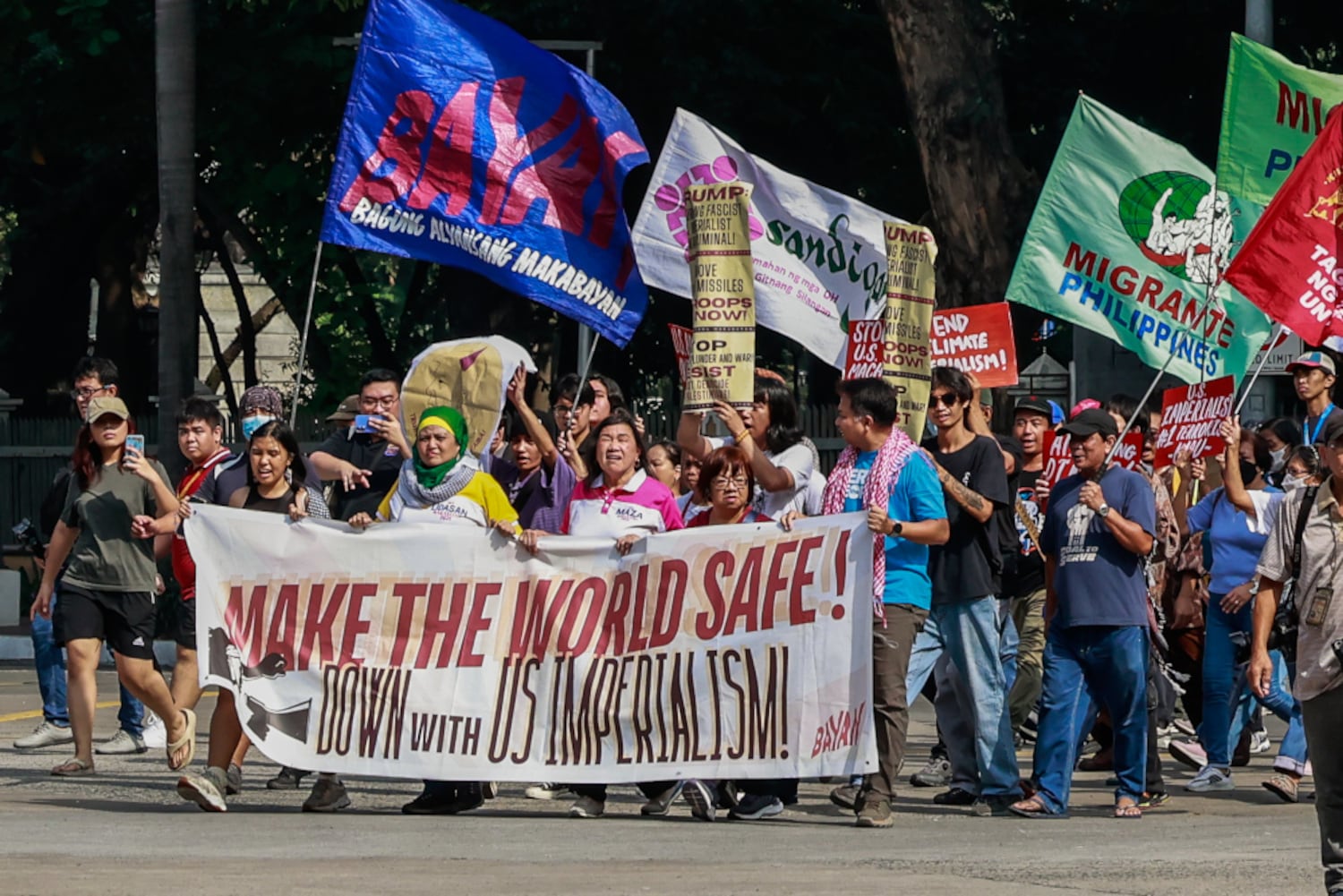
“We will need to plan for a worst-case scenario in which Trump and Xi will reach a modus vivendi that sacrifices the Philippines’ national interests,” Rommel Jude Ong, a retired Philippine Navy rear admiral, told BenarNews while calling for stronger ties with other regional powers such as Japan and Australia. Xi is Xi Jinping, China’s president.
Meanwhile, a social media user in Southeast Asia questioned Hegseth’s comments.
“Not having heard of ASEAN doesn’t mean it doesn’t exist. All of us here in the ASEAN are cringing over what’s happening over there in the West,” a Filipina who goes by the username @tessgarcia wrote on X, formerly Twitter. “Geography-challenged people like Hegseth are probably the reason the U.S. lost in Vietnam (an ASEAN country).”
Jason Gutierrez and Gerard Carreon in Manila, Jon Preechawong in Bangkok, Iman Muttaqin Yusof and Iskandar Zulkarnain in Kuala Lumpur, Pizaro Gozali Idrus and Tria Dianti in Jakarta contributed to this report.
BenarNews is an RFA-affiliated online news organization.
This content originally appeared on Radio Free Asia and was authored by BenarNews staff.
This post was originally published on Radio Free.
Comprehensive coverage of the day’s news with a focus on war and peace; social, environmental and economic justice.

The post Biden announces Hamas-Israel ceasefire agreement; Trump cabinet picks face skeptical Democrats in Senate – January 15, 2025 appeared first on KPFA.
This content originally appeared on KPFA – The Pacifica Evening News, Weekdays and was authored by KPFA.
This post was originally published on Radio Free.
This content originally appeared on Democracy Now! and was authored by Democracy Now!.
This post was originally published on Radio Free.
This content originally appeared on Democracy Now! and was authored by Democracy Now!.
This post was originally published on Radio Free.
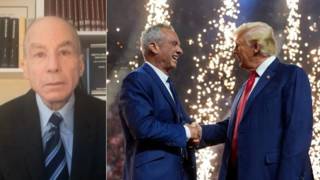
Public health officials are decrying President-elect Donald Trump for selecting Robert F. Kennedy Jr. to head the Department of Health and Human Services. If confirmed, Kennedy would head a sprawling agency that oversees drug, vaccine and food safety, as well as medical research. Kennedy is one of the nation’s most prominent vaccine skeptics and has spread numerous public health conspiracy theories. Kennedy has claimed HIV may not cause AIDS. He claimed COVID-19 was designed to spare Ashkenazi Jews and Chinese people. He has claimed chemicals in the nation’s water supply are leading more children to be gay and transgender, and he’s publicly spoken about removing fluoride from drinking water. “I can’t think of a darker time for public health in America and globally than now,” says Lawrence Gostin, professor of global health law at Georgetown University. “He has no fidelity to truth, to science. … He will make America sick, certainly not healthier again.”
This content originally appeared on Democracy Now! and was authored by Democracy Now!.
This post was originally published on Radio Free.
This content originally appeared on Democracy Now! and was authored by Democracy Now!.
This post was originally published on Radio Free.
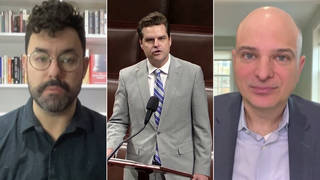
President-elect Donald Trump has nominated far-right Florida Congressmember Matt Gaetz to serve as his attorney general. The selection of Gaetz, a staunch Trump loyalist, appears to signify Trump’s intent to weaponize the Department of Justice to target political enemies. Gaetz has “no appreciable law enforcement experience,” says Noah Bookbinder, the president of Citizens for Responsibility and Ethics in Washington, which has sued the federal government for access to a DOJ investigation into allegations that Gaetz was involved in the sex trafficking of an underage girl. That investigation was not made public, and no federal charges were filed, but the House Ethics Committee launched its own inquiry into Gaetz, the status of which is now up in the air after Gaetz resigned on Wednesday. If approved as attorney general, Gaetz is likely to “take an ax to the nonpartisan functioning of the Justice Department,” warns Zack Beauchamp, a senior correspondent at Vox. “His chief qualification … is his willingness to do whatever Donald Trump needs to be done.” We also discuss the status of various other legal issues swirling around Trump and his supporters, including the Justice Department probes into Trump, the potential pardoning of January 6 insurrectionists and if Trump will abuse the presidential power of recess appointments when he takes office.
This content originally appeared on Democracy Now! and was authored by Democracy Now!.
This post was originally published on Radio Free.
This content originally appeared on The Intercept and was authored by The Intercept.
This post was originally published on Radio Free.
Comprehensive coverage of the day’s news with a focus on war and peace; social, environmental and economic justice.

The post The Pacifica Evening News, Weekdays – August 6, 2024 Harris picks Minnesota Governor Tim Walz as her running mate, they appear together at Philadelphia rally. appeared first on KPFA.
This content originally appeared on KPFA – The Pacifica Evening News, Weekdays and was authored by KPFA.
This post was originally published on Radio Free.
This content originally appeared on Democracy Now! and was authored by Democracy Now!.
This post was originally published on Radio Free.

Vice President Kamala Harris has selected Minnesota Governor Tim Walz, a favorite of many progressives in the Democratic Party, to be her running mate in the 2024 presidential race. They are set to hold their first joint campaign rally this evening. We get analysis from John Nichols, The Nation’s national affairs correspondent.
This content originally appeared on Democracy Now! and was authored by Democracy Now!.
This post was originally published on Radio Free.
Comprehensive coverage of the day’s news with a focus on war and peace; social, environmental and economic justice.

The post The Pacifica Evening News, Weekdays – April 18, 2024 President Biden picks up the endorsement of more than a dozen members of the Kennedy family, bypassing the RFK Jr. candidacy. appeared first on KPFA.
This content originally appeared on KPFA – The Pacifica Evening News, Weekdays and was authored by KPFA.
This post was originally published on Radio Free.
The “Columbine” comparisons began as soon as word and video footage of the deadly attack on School No. 175 in Kazan emerged. But if school shootings were described less than a decade ago as a rarity in Russia, this time Russian headlines lamented “another” attack that echoed the infamous 1999 tragedy at a U.S. high school.
The May 11 attack in the Tatar capital — in which at least nine people were killed and 21 wounded — has been blamed on a disgruntled former student of the school equipped with a legally registered gun.
The bloodshed led to a clamor from Russian officials talking about ways to try to avoid such shootings in the future, including calls by President Vladimir Putin to impose controls on the types of weapons available to ordinary citizens.
It has also placed renewed focus on the growing list of shootings and other attacks on schools carried out by young people in Russia in recent years, and added to scrutiny of the government’s struggles to prevent what for years was seen mainly as a U.S. phenomenon.
In 2014, at Moscow’s School No. 263, a 15-year-old carrying two rifles shot and killed a teacher and a police officer and took 29 classmates hostage before he gave himself up. Putin at the time called the incident “tragic,” and the city’s mayor ordered a comprehensive review of security measures at schools in the Russian capital.
In January 2018, 11 children and a teacher were injured in the Urals city of Perm when two 16-year-olds entered a classroom and slashed them with knives. Most of those injured, some seriously, were aged 10-12. One suspect was alleged to have posted a video of perpetrators of U.S. school attacks, including the two teens who carried out the Columbine massacre, on his VKontakte page.
Just days later, in a village outside the southern Siberian city of Ulan-Ude, a ninth-grader reportedly wearing a T-shirt resembling one worn in the Columbine attack injured four seventh-graders and a teacher with an axe and used a Molotov cocktail to set his former school ablaze.
And in October of the same year in Russian-occupied Crimea, 21 people were killed in a shooting and explosion at a university in the city of Kerch.
Russian state media were banned from making the connection to Columbine following the attack carried out by a shooter wearing clothing similar to that worn by the two teen perpetrators of Columbine, who fatally shot 12 fellow students and a teacher before killing themselves. As with the shooting at the Colorado high school shooting, the attack in Crimea was dubbed a “massacre.”
Attempts At Prevention
Like other governments, Putin’s has struggled to find ways to avert such attacks. Following the 2014 attack in Moscow, he suggested that a more well-rounded education might help prevent student-on-school violence.
“A new generation of spectators with good artistic taste should be brought up — capable of understanding and appreciating theatrical, dramatic, and musical arts,” Putin told theater workers in Pskov shortly afterward. “Had we been doing this properly, maybe there would have been no tragedies similar to today’s tragedy in Moscow.”
That school shooting, which at the time was described by the media as “incredibly rare” in Russia, news that a school guard was unable to prevent the armed pupil from entering the school led Moscow Mayor Sergei Sobyanin “to conduct a complete review of how our school security system is working, and to take additional steps.”
Plenty of steps have been taken since to try to make schools safer around the country, adding to security measures implemented in the decade following the Beslan school siege, in which more than 330 people — most of them children — were killed in North Ossetia after militants took more than 1,000 hostages on the first day of school in 2004.
“We have security screens. We monitor the entrance to the school — the rest of the school is surrounded by a perimeter fence — and it has an automatic gate, so that you can see who is coming into the school,” an official at a central Moscow school told RFE/RL three years after the siege. “We have a videophone system on the gate. And in this way we can monitor who visits the school. These measures were brought in after Beslan.”
In recent years, Russia has invested heavily in school security, including in an initiative to install “Orwell 2k” facial-recognition systems in more than 43,000 Russian schools as part of Putin’s $25.4 million national digitalization project. The technology is intended to ensure safety by monitoring students’ movements and identifying outsiders on school premises.
When the attack began on May 11, Kazan’s School No. 175 had security measures in place for its some 1,000 students in grades one to 11 — including an “action plan for the prevention of terrorism and extremism” last updated for the 2018-19 school year.
The plan advises students to “get to know each other better,” and stresses the importance of sport, tolerance, and minimizing conflict. The school’s website also provides links to the “municipal program for the prevention of terrorism and extremism in Kazan for 2016-2020.”
But there were also conflicting reports about the presence of security guards at the school. Representatives of the Russian National Guard revealed on May 11 that there were no guards on the premises — only a panic button to alert the National Guard.
There were also claims that private security guards stopped working at the school three years ago due to problems with payment. However, the Telegram channel In Kazan quoted Galina Ukhvanova, a deputy director at School No. 175, as saying that the security firm had been paid in full, and that the school had a guard on its staff.
Idel.Realities, of RFE/RL’s Tatar-Bashkir Service, reported that the school said that a 62-year-old guard was on duty, and was hospitalized after the attack.
It is unclear how security precautions — or the lack thereof — may have affected the outcome of the attack on May 11.
Heavily armed police and emergency vehicles reportedly responded quickly, and video showed students streaming out of the school and, in some cases, jumping to their death from windows in the multistory school in an effort to escape.
Other videos showed students scrambling down fire-truck ladders to evacuate the school, while others show the wounded being treated outside the school.
Local Suspect
Grainy security-camera video posted to Telegram claimed to show the shooting suspect, whom Russia’s Investigative Committee said it had identified as “a local resident born in 2001,” walking along a street on his way to the school while brandishing a long gun. The regional interior minister said the attack was carried out by a 19-year-old shooter, who was apprehended, and media reports identified the suspect as Ilnaz Galyaviyev.
As investigators opened a mass murder case, Putin reportedly instructed the head of the Russian National Guard, Viktor Zolotov, “to hammer out new regulations on the types of weapons that are designated for civilian use, and which weapons may be in the possession of citizens, including the types of small arms the gunman used in this shooting.”
Some applauded Putin on social media, pointing to the availability of firearms in the United States and the steady stream of school shootings that have taken place there in the last two decades.
Others suggested his steps may be misdirected.
Pavel Lokshin, a Moscow correspondent for the German newspaper Welt, tweeted: “I guess it’s safe to say that school shootings in Russia aren’t driven by the availability of firearms which is already pretty low. Besides, Putin did exactly the same thing after the Kerch shooting. Didn’t prevent Kazan.”
Some Russian educators say that security measures aside, the state has taken steps that could be detrimental to efforts to curb school violence, such as cutting the number of psychologists in schools.
And while the May 11 attack raised questions about whether any warning signs had been overlooked, government critics say the state sometimes takes a heavy-handed approach in its efforts to avert school violence.
In 2020, the homes of several students in Siberia were raided following accusations they had taken part in a social-media chat room dedicated to the Columbine massacre.
Authorities claimed the teens had discussed a plot to attack a local school, and nine of them — including a 14-year-old girl — were forced to undergo involuntary examinations as a result.
This post was originally published on Radio Free.
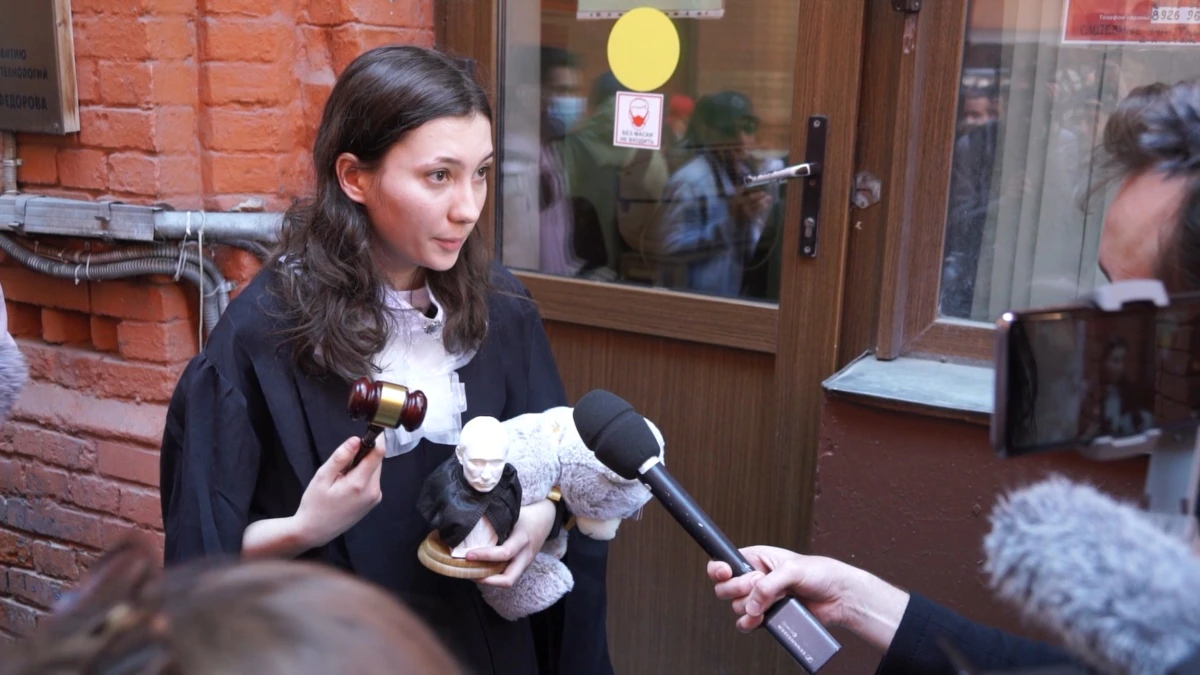
A Moscow court has found three young pro-democracy activists guilty of vandalism for splashing paint on a booth at the entrance to the Prosecutor-General’s Office last year to protest against a crackdown on other activists. The court handed down parole-like sentences to the trio on May 11. Both Igor Basharimov and Ivan Vorobyovsky were given 21 months of “freedom limitation,” while Olga Misik was sentenced to two years. Misik became well-known after reading excerpts of the Russian Constitution to riot policemen in Moscow in 2019. She was 17 at the time.
This post was originally published on Radio Free.
His name was Alireza Fazeli Monfared and he was only 20 years old.
Fazeli Monfared was homosexual and due to the difficulties he faced because of his sexual orientation, was about to flee his native Iran for Turkey.
But he was reportedly killed by his family members before he could leave the southwestern province of Khuzestan after they accused him of dishonoring the family.
Fazeli Monfared’s killing has put the plight of Iran’s LGBT community in the spotlight amid concerns that this will not be the last suspected case of so-called honor killings of homosexuals in the Islamic republic.
“There’s no guarantee that this won’t happen again until our society becomes educated and informed,” Arsham Parsi, a Toronto-based, Iranian gay-rights activist and head of the International Railroad for Queer Refugees, told RFE/RL.
Killed For Being Gay
Fazeli Monfared was reportedly killed on May 4 by his half-brother and cousins who, according to some reports, beheaded him and dumped his body under a tree near the provincial capital of Ahvaz. They reportedly called his mother to tell her where to find him.
The Iranian Lesbian and Transgender Network 6rang said in a May 7 statement that Fazeli Monfared’s half-brother learned about his sexual orientation after seeing his military service exemption card. In Iran, homosexuals are allowed to skip military duty due to “mental disorders.”
Even before he was killed, Fazeli Monfared had complained to friends about threats from his relatives due to his sexual orientation.
In an audio recording obtained by the BBC, Fazeli Monfared said that his family had threatened to kill him and that he was planning to flee Iran to seek asylum in Norway or Sweden.
Fazeli Monfared’s partner, activist Aghil Abyat, told RFE/RL that he was due to travel to Turkey on May 8 to join him.
“He had told me that he had been threatened by his half-brother,” he said.
‘Lively’ And ‘Very Happy’ Man
Abyat described Fazeli Monfared as a “lively” and “very happy” young man who liked to travel, listen to music, and post videos on TikTok. His Instagram posts also suggest an interest in fashion.
Parsi, who had in recent weeks interacted with Fazeli Monfared on Clubhouse, said the young man had complained about family pressure and intolerance in society.
“He didn’t clearly say that he had been threatened with murder because if he had done so I would have contacted him privately since we take these issues very seriously, but he spoke about his family not accepting him and the pressure families put on homosexuals,” Parsi told RFE/RL.
Members of Iran’s gay community are forced to hide their sexual orientation, often leading double lives due to fear of persecution by the state, which criminalizes homosexual acts, while society views homosexuality as a disease.
Many in the lesbian, gay, bisexual, and transgender (LGBT) community are shunned by their families who view them as a stain on the family’s honor.
Homosexuality is punishable by death in Iran but proving that a sexual act has taken place is not easy and requires the testimony of four adult men.
Horrific Punishments, Abuse
Parsi said the LGBT community is “extremely vulnerable” while being exposed to horrific punishment and harassment.
“On the one hand, the establishment has laws that includes the death penalty and stoning for homosexuals, on the other hand their families do not accept them, neither does the society,” he said. “If something happens to them at work or school, if they get abused or raped, they don’t have anywhere to turn to.”
Fazeli Monfared’s murder has sent a chilling message to Iran’s gay community, reminding them of the dire threats they face.
“Today, I received the 86th message from [a homosexual inside Iran] who said this could have been us,” said Parsi, adding that “the fear homosexuals experience is real and must be taken seriously.”
Berlin-based human rights activist Kaveh Kermanshahi said the killing has shocked many.
“Whoever has gone through similar problems can relate and go through the trauma again, they have been reminded of their hardships,” said Kermanshahi, who came out only after leaving Iran several years ago.
“The reasons for not coming out are many more than those in favor of coming out,” he said.
“I was politically active, I was active in the human rights sphere, I was also a journalist faced with the risk of arrest, which happened. Due to of all these issues I had decided that [my sexuality] should not be revealed,” Kermanshahi added.
Honor Killings Often Unreported
Both Kermanshahi and Parsi believe that a large number of killings in Iran due to someone’s sexual orientation go unreported.
“Queers who have been in contact with these people fear reporting or investigating the cases because they can be outed in the society therefore these cases often happen in silence,” Kermanshahi said.
“When it comes to uxoricide, we have women’s rights activists who highlight these cases,” he said. “But in Iran we don’t have the possibility of queer activists working actively therefore it is possible that other cases — like [Fazeli Monfared’s] murder and [gay suicides] — are not being reported.”
In 2017, 6rang reported that a 23-year-old transsexual identified as Siavash was killed in Khorramabad in western Iran by his father who, according to the report, committed suicide afterward.
“Apparently the sexual identity of Siavash was not acceptable to the family at all,” 6rang said.
Parsi said in 2004 that a local newspaper reported the killing of a member of Iran’s gay community by his father in a northern Iranian village.
“It never became clear whether the father was arrested and punished,” he said.
According to a 2020 poll published by the 6rang advocacy group, 62 percent of LGBT members surveyed had said that they had experienced one or more forms of violence by their immediate family. Nearly 30 percent of them complained of sexual violence, while 77 percent said they had been subjected to physical violence.
The pressure and persecution force many members of Iran’s LGBT community to flee the country, while many others undergo gender-reassignment surgery.
This post was originally published on Radio Free.
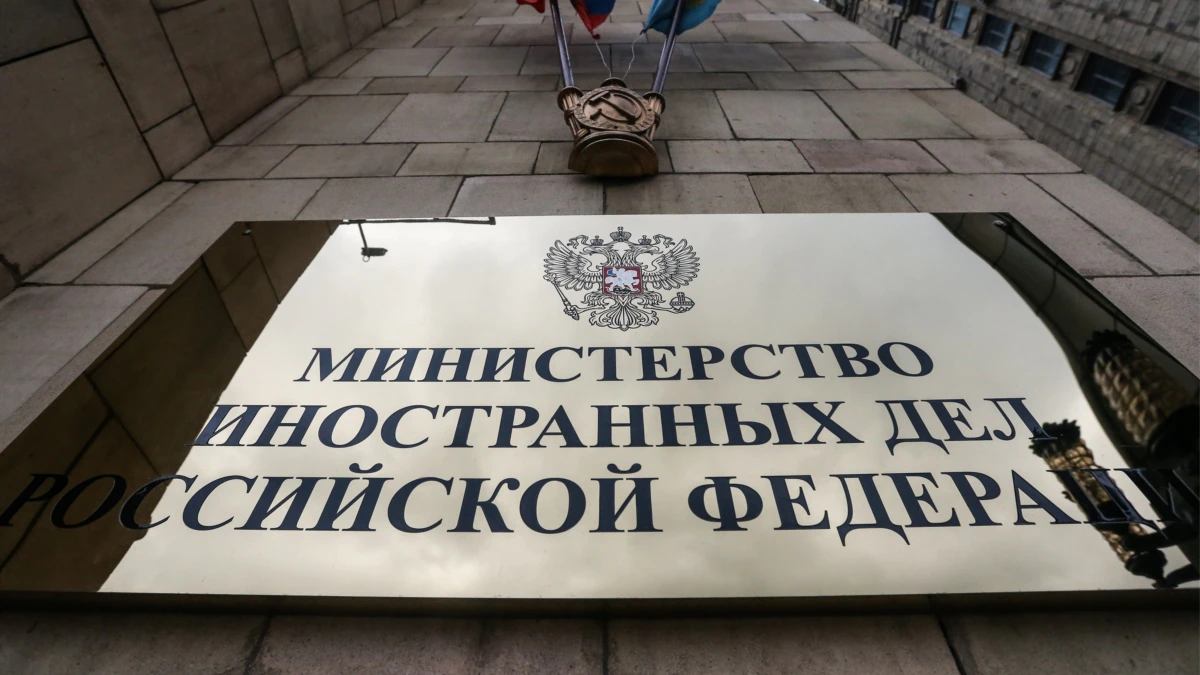
Russia has announced the expulsion of the Romanian Embassy’s deputy military attache in response to Bucharest’s decision to expel a Russian diplomat.
Romania’s ambassador to Russia, Cristian Istrate, was summoned on May 11 to the Russian Foreign Ministry in Moscow where he “was given a note from the ministry declaring Captain G. Iliescu, aide to the military attache at the Romanian Embassy, persona non grata,” the ministry said in a statement.
Iliescu has 72 hours to leave Russia, the statement said, adding that the decision was made “in response to the unfounded declaration of an aide to the military attache at the Russian Embassy in Bucharest persona non grata on April 26.”
Romania late last month expelled the deputy military attache at the Russian Embassy in Bucharest for activities incompatible with his diplomatic status. It gave no further reason for the order.
Several other former Soviet bloc countries in Central and Eastern Europe, all of them members of the European Union and NATO, have expelled Russian diplomats last month, triggering reciprocal measures by Moscow.
The series of tit-for-tat expulsions began last month when the Czech Republic expelled scores of Russian diplomats over the accusations that Russian spies were involved in a deadly ammunition depot explosion in 2014, prompting a tit-for-tat response from Moscow.
Lithuania, Latvia, and Estonia — all former Soviet republics — followed in Prague’s steps, expelling Russian diplomats in solidarity with the Czechs. Slovakia and Bulgaria also followed suit.
This post was originally published on Radio Free.
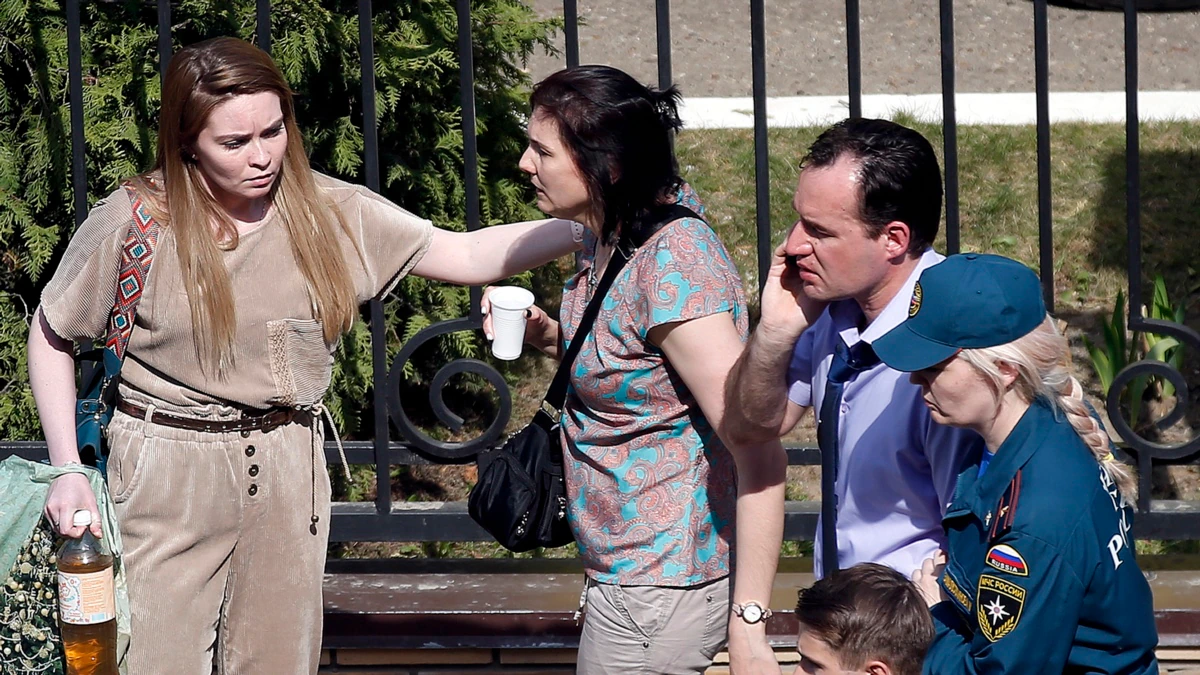
Many people, including students and at least one teacher, have been killed in an attack on a school in Kazan, the capital of Russia’s Tatarstan republic. After a shooting spree and reports of multiple explosions, one attacker was reportedly detained.
This post was originally published on Radio Free.
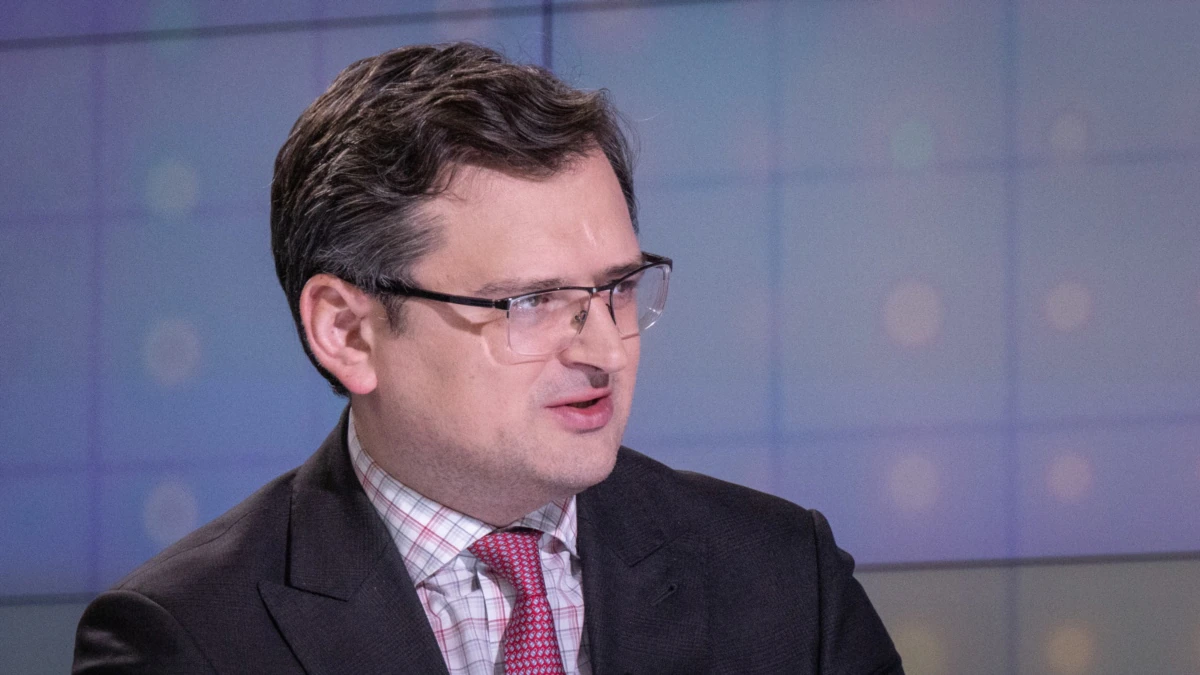
Kyiv says it does not expect that next month’s NATO summit will produce a Membership Action Plan (MAP) for Ukraine because some members of the military alliance worry that such a move would provoke Russia.
“Regarding the obstacles, unfortunately, there are still several countries among the allies who are guided by the logic of not provoking Russia and believe that sitting and doing nothing is the best way to keep Russia calm,” Foreign Minister Dmytro Kuleba told the Ukraine 24 channel on May 11.
Ukraine joining the alliance, which Moscow has fiercely opposed, “is historically inevitable,” Kuleba said. “It will happen. I am absolutely convinced of that.”
The MAP is a program of “advice, assistance, and practical support tailored to the individual needs of countries wishing to join” NATO, according to the alliance’s website.
Participation in the MAP “does not prejudge any decision by the Alliance on future membership,” it adds.
Kuleba’s comments come after Russia earlier this year deployed more than 100,000 troops near the border with Ukraine and in occupied Crimea — the biggest mobilization since Moscow seized the Ukrainian peninsula in March 2014 and war broke out in eastern Ukraine.
The buildup prompted alarm in Western capitals over Moscow’s intentions amid an uptick in fighting between Ukrainian government forces and Kremlin-backed separatists in the country’s east. The conflict has killed more than 13,000 people since April 2014.
Russia says its troops have returned to their permanent bases after participating in massive drills, but Ukrainian President Volodymyr Zelenskiy said on May 11 that Russia had not withdrawn military hardware.
Zelenskiy told Ukraine 24 he believed Russia won’t resort to a “powerful escalation” because it could lead to “a world war.”
During a visit to Kyiv last week, U.S. Secretary of State Antony Blinken “strongly” reaffirmed Washington’s “commitment to Ukraine’s sovereignty, territorial integrity, and independence,” and called on Russia to cease its “reckless and aggressive actions” against its neighbor.
This post was originally published on Radio Free.
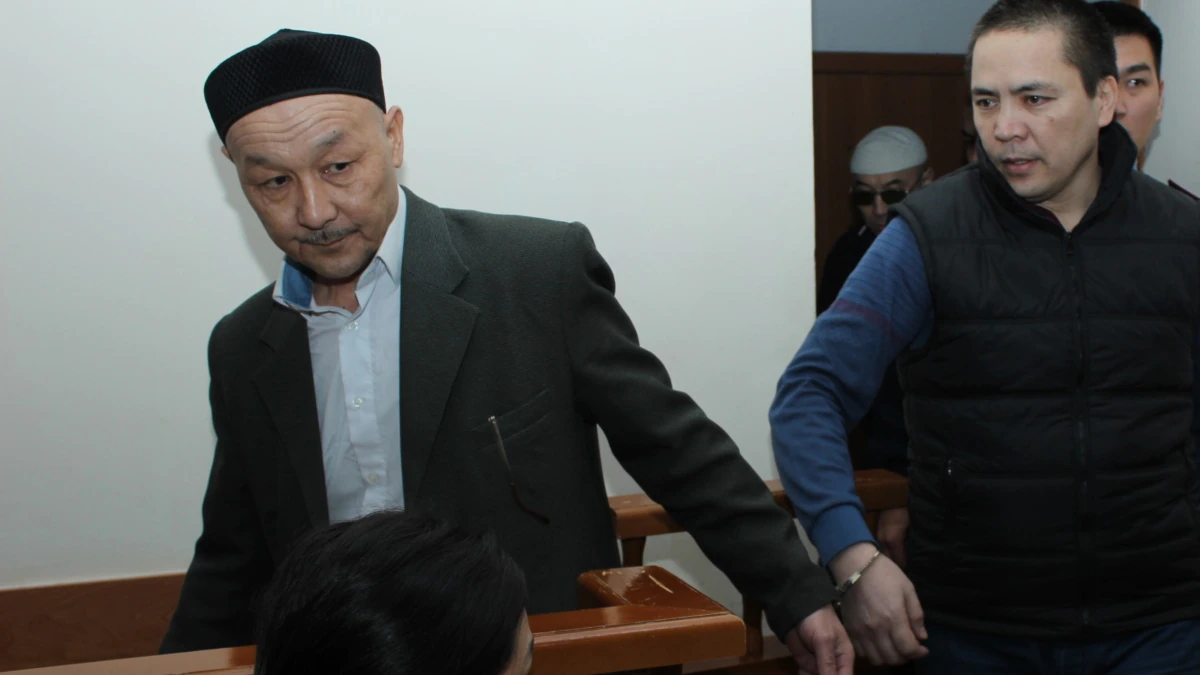
QAPSHAGHAI, Kazakhstan — A court in Kazakhstan has again rejected an early-release request for ailing activist Kenzhebek Abishev, who has been recognized by domestic human rights organizations as a political prisoner.
Abishev’s lawyer, Gulnar Zhuaspaeva, told RFE/RL that the court ruled on May 11 that Abishev cannot be granted early release, again rejecting his argument for time off due to good behavior and concerns over his health.
Last week, the chairwoman of the Aman-Saulyq Human Rights Foundation, Bakhyt Tumenova, said that Abishev’s condition was worrisome, as he suffers from multiple medical conditions and should be released as soon as possible.
In mid-April, Abishev was rushed from prison to the hospital in Qapshaghai as his condition word due to a hunger strike that he started to protest the cancellation of his release in February on parole and prison conditions.
Physicians then diagnosed Abishev with coronary heart disease. It is not clear at the moment if Abishev is still on his hunger strike.
On February 1, the Qapshaghai court ruled that Abishev could be released on February 16, more than three years early, for good behavior while in prison, a procedure allowed by Kazakh law.
However, the Almaty regional prosecutor’s office appealed the ruling at the very last moment, arguing that the 53-year-old activist’s good behavior in custody was not enough to secure his early release, since he still had more than three years to serve.
The court then scrapped the move, leaving Abishev in prison.
Abishev was sentenced to seven years in prison in December 2018 after he and two other activists were found guilty of planning a “holy war” because they were spreading the ideas of the banned Democratic Choice of Kazakhstan (DVK) movement. His prison term was later cut by eight months.
Abishev pleaded not guilty, calling the case against him politically motivated.
The DVK was founded by Mukhtar Ablyazov, an outspoken critic of the Kazakh government who has been living in France for several years.
Ablyazov has been organizing unsanctioned anti-government rallies in Kazakhstan via the Internet in recent years.
This post was originally published on Radio Free.
BELGRADE — With a Chinese university project in Hungary drawing controversy over a lack of transparency and concerns about academic freedom, Beijing’s influence in higher education in neighboring Serbia continues to grow.
A strategic agreement signed between Hungary and Shanghai’s prestigious Fudan University in April made international headlines and sparked a backlash at home.
The decision to build a Budapest campus by 2024 using a $1.5 billion loan from a Chinese bank put a spotlight on Prime Minister Viktor Orban’s close ties to Beijing and raised concerns about the long-term impact of such a project on the country’s higher-education system.
But in Serbia — where Beijing enjoys a close relationship with President Aleksandar Vucic and has been steadily deepening its ties over the last two decades — growing cooperation with Chinese universities and schools continues unabated.
Currently, three Serbian universities — the University of Belgrade, the University of Novi Sad, and the University of Nis — have signed a cooperation agreement with Shanghai’s Jiao Tong University, opening the door to deepening educational and cultural bonds between Serbia and China.
The agreements, which were signed in 2018, set up broad terms for cooperation that can grow deeper over time. They include new student and staff exchanges and scholarships, as well as growing Chinese financial support and Chinese-language classes.
In addition to the agreements with public universities, Serbia also hosts two Confucius Institutes, in Belgrade and Novi Sad. The government-run entities, which offer language and cultural programs abroad, have been accused by critics of being a means for Beijing to spread propaganda under the guise of teaching and to interfere with free speech on campuses.
Vucic has cemented relations with Beijing, cooperating on infrastructure, tourism, and technology projects that have brought in more than $10 billion in foreign direct investment since 2005. But the growing education and cultural focus represents a new phase of Chinese engagement in the Balkans and Europe more broadly.
“It’s a textbook example of a soft-power move,” Stefan Vladisavljev, an analyst at the Belgrade Fund for Political Excellence, told RFE/RL. “While China is still trailing countries like Russia [in the Balkans], this can bring a lot of people closer to Beijing. The idea is to make China more accessible and more familiar and leave an imprint on society as well.”
Serbia is part of China’s Belt and Road Initiative and one of the main cheerleaders of the 17+1 format, a Beijing-led forum launched in 2012 for China to engage with Central and Eastern European countries.
But China’s strong ties with Belgrade, analysts say, have allowed Serbia to function as an economic, political, and economic hub for Beijing to expand across the Western Balkans and serve as a showcase for the merits of Chinese initiatives, from surveillance to cooperation on the coronavirus pandemic.
“Serbia is a poster child of cooperation in the region and one of the countries that Beijing points to when it wants to show what a successful relationship can look like,” Vladisavljev said.
Deepening Ties
As Tena Prelec, a researcher at the University of Oxford, told RFE/RL’s Balkan Service, Beijing’s growing imprint on Serbian higher education should be seen in the wider context of China investing in universities across the globe as part of a broader effort promote its culture, language, and international ties.
It has become impossible to tell the biggest stories shaping Eurasia without considering China’s resurgent influence in local business, politics, security, and culture.
China In Eurasia is the new biweekly newsletter by correspondent Reid Standish in which he builds on local reporting from RFE/RL’s journalists across Eurasia to give you unique insights into Beijing’s ambitions. It’s sent on the first and third Wednesdays of each month.
To subscribe, click here.
“China’s desire is to shape the way it is presented on a global level, and I think it was only a matter of time for having a stronger presence in the academic sphere in Serbia,” Prelec said.
But Serbia also represents a relatively safe space to expand in higher education, where China enjoys a great deal of goodwill among the population, public backing from the national government, and where initiatives like the Confucius Institute don’t face the same level of scrutiny that they currently do across the European Union, where several of its chapters have recently been shut down.
While such programs offer new opportunities for students and faculty, University of Belgrade professor Dragana Mitrovic says these efforts at cultural diplomacy are part of a larger effort by Beijing to help spread a “Chinese narrative” on global affairs. “Strengthening Chinese cultural influence is an integral part of this cooperation [with Serbia] and a goal of the Chinese government,” Mitrovic told RFE/RL’s Balkan Service.
Cooperation isn’t limited to ties between universities, either. Chinese companies are also becoming involved with Serbian higher education.
Kragujevac, a city in central Serbia, signed an agreement in February 2020 for its local university to cooperate with the Chinese company Dahua Technology, which focuses on video-surveillance technology.
The Chinese company Linglong, which is bilding a nearly $1 billion tire factory in Zrenjanin and is the leading sponsor of Serbia’s top soccer league, created a scholarship program in March 2020 for Serbian students.
A New Phase
“The Chinese are diversifying their approach to education and academic cooperation in the sense that they are now going well beyond state institutions,” Vladimir Shopov, a fellow at the European Council on Foreign Relations, told RFE/RL.
This type of cooperation, which Shopov says is designed to develop relationships and embed its influence across society, politics, and the economy, is already moving beyond the traditional scope of cooperation with universities and through Confucius Institutes.
Instead, a growing emphasis is being put on working with local authorities, private companies, and different Chinese organizations.
A Chinese cultural center in Belgrade that will focus on arts, literature, and other areas of cultural engagement is slated to open in 2021. It will be modeled after other centers in Bulgaria, Greece, and Romania. The center in Belgrade is being built at the symbolic site of the Chinese Embassy that NATO planes bombed in 1999 and will function as a showcase for Chinese art, literature, and language.
“This type of engagement is the logical next step for Beijing’s presence in the region,” Shopov. said “China sees the way its moves are interpreted around the world and it’s clear to them that they need to be more active about getting their story across.”
In Serbia, China’s expanding footprint has faced little resistance, but recently workers and environmentalists across the country have voiced concerns over pollution from investment projects owned by Chinese companies.
Protests over environmental degradation in Belgrade on April 10 drew thousands and led to the government ordering the Chinese-run Zijin copper mine in the southern town of Bor to halt work for failing to comply with environmental standards.
It also ordered a Chinese-owned recycling plant near Zrenjanin to stop production because of environmental damage.
But China’s broader push into Serbian education and cultural life is poised to continue.
“We are at the beginning of this cooperation, it’s still something that is being developed,” Vladisavljev said. “We are witnessing the inception right now.”
This post was originally published on Radio Free.
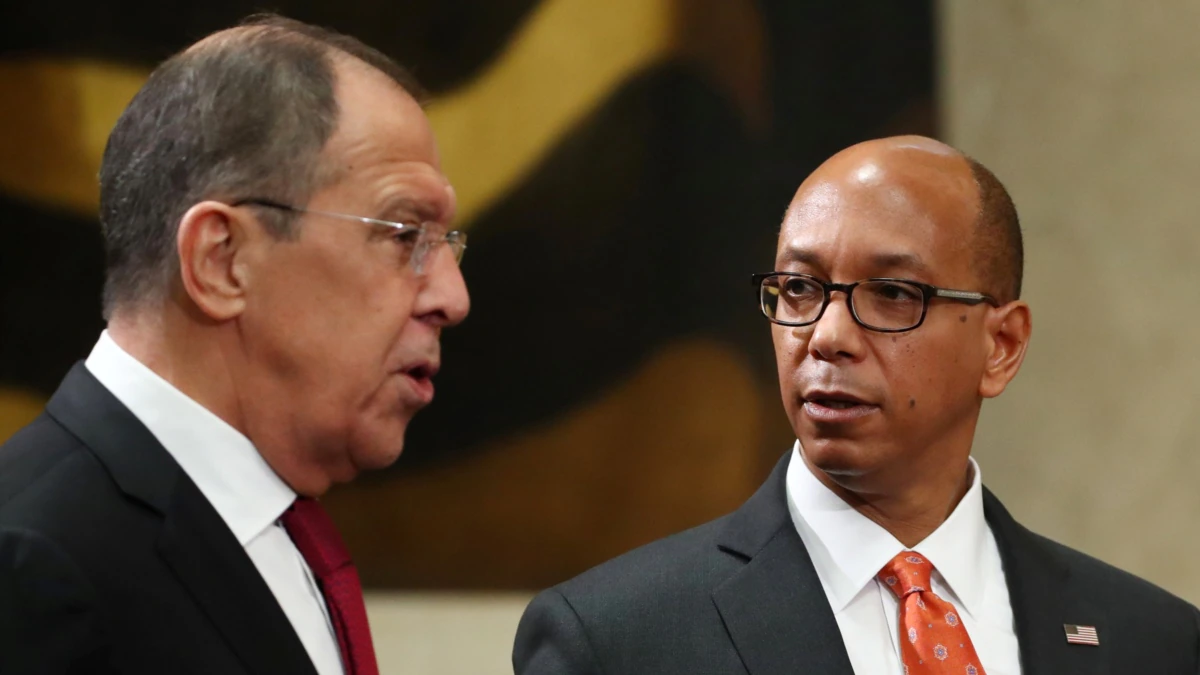
The U.S. ambassador for disarmament says preparations for a possible meeting between Russian President Vladimir Putin and U.S. President Joe Biden are under way.
The two presidents “have agreed to explore strategic stability discussions on a range of arms-control and emerging security issues,” Robert Wood told a United Nations conference on May 11.
“They are in the process of preparing for these discussions.”
Speaking during a visit to Baku, Russian Foreign Minister Sergei Lavrov backed up Wood’s comments, saying that Moscow had proposed discussing arms control and security matters if the bilateral summit were to take place.
He also said that Moscow was still waiting for answers from Washington on details for any proposed meeting.
Biden has said he hoped to meet with his Russian counterpart during a planned trip to Europe in June.
The U.S. president in April offered to meet in a third country to discuss rising tensions over issues including military threats to Ukraine, cyberattacks allegedly by Russian hackers, and Russia’s treatment of jailed opposition activist Aleksei Navalny.
Biden has repeatedly stated that while he will be tough on Russia over any hostile policies, he is also seeking to cooperate where the two sides have mutual interests. This includes issues such as nuclear proliferation, climate change, the Iran nuclear deal, North Korea, and fostering peace and stability in Afghanistan.
In February, Russia and the United States formally extended the New START nuclear arms-control treaty for another five years, just days before it was set to expire.
New START, the last remaining arms-control pact between Washington and Moscow, limits the number of deployed strategic nuclear warheads at 1,550, deployed strategic delivery systems at 700, and provides for a verification regime.
This post was originally published on Radio Free.
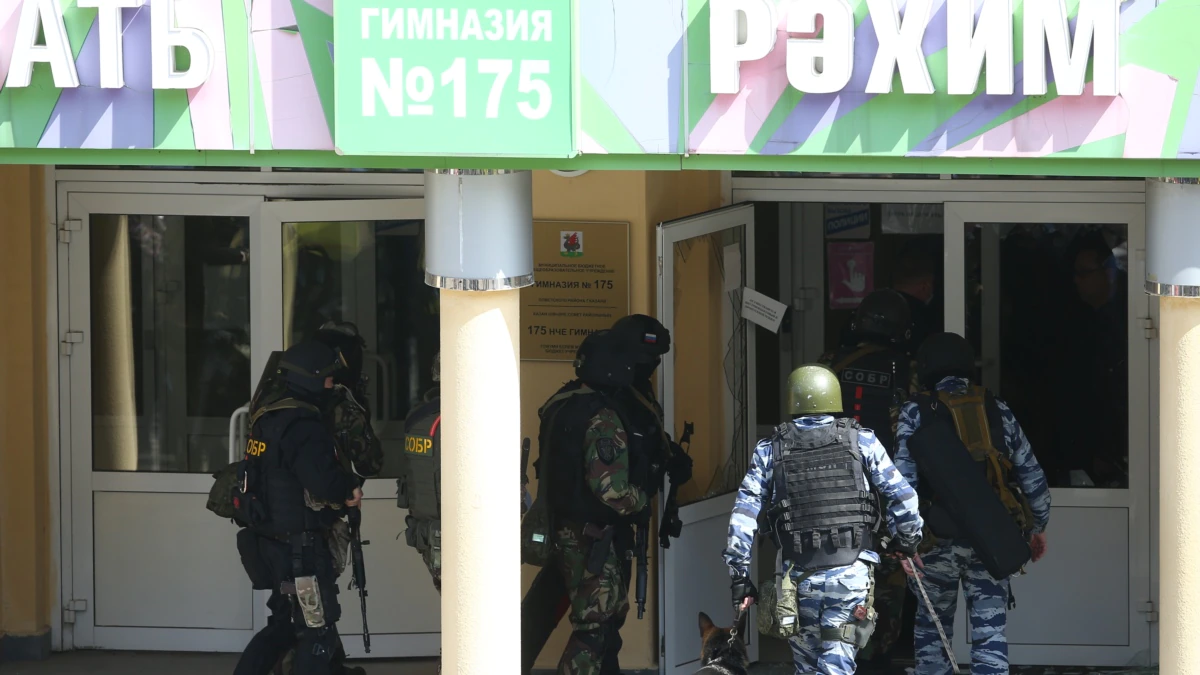
Media reports say that more than one person opened fire at School No. 175 on Dzhaudat Faizi Street in the city, which has more than 1,000 students. According to reports, one of the attackers was shot dead by police while at least one remained inside the building, holding hostages. Some reports also say that one attacker, a teenager, was apprehended.
The area has been cordoned by law enforcement and students and teachers are being evacuated via windows.
This post was originally published on Radio Free.

The Interior Ministry for the republic added that 21 people had been injured in the incident, including six children who were taken to intensive care units.
The region’s interior minister said that the assault was carried out by a 19-year-old shooter, who was apprehended.
The school has more than 1,000 students.
This post was originally published on Radio Free.

Reporters Without Borders (RSF) is urging the Iranian parliament to reject a bill that it says would “help further erode Iran’s increasingly vulnerable press freedom” ahead of next month’s presidential election.
In a statement on May 10, the Paris-based media-freedom watchdog says the proposed law would ban U.S. and British journalists from entering Iran and would ban the Iranian media from reporting anything published by the U.S. and British media.
Violations of the proposed law would be punishable by five to 10 years in prison and a fine of up to 360 million rials ($16,340).
“This proposed law is ridiculous as well as lacking any legitimacy,” said Reza Moini, the head of RSF’s Iran-Afghanistan desk.
“The media it targets are an integral part of the world in which we live and of which the Islamic republic is part, regardless of what it says,” he added.
“Furthermore, the Persian-language sections of certain international media are the main sources of freely and independently reported news and information for Iranians.”
The proposed law, submitted by 41 parliament members on April 18, says the two prohibitions are justified because the U.S. and British media and their journalists are responsible for “many actions against national interests and against the Islamic republic,” according to RSF.
The group notes that the international media coverage of the June presidential poll “is unlikely to please the regime because it is clear that the electoral process is just a smokescreen for the future president’s designation” by Supreme Leader Ayatollah Ali Khamenei.
Iran is ranked 174th out of 180 countries in RSF’s 2021 World Press Freedom Index.
Upon arrival in Iran, foreign journalists are currently placed under “close surveillance” by the authorities and “their journalism is subjected to a form of censorship in which, if they fail to toe the official line, they can end up having to leave,” RSF says.
Meanwhile, “Iranian journalists — and sometimes their family members as well — have for years been subjected to harassment, arrest, and long prisons sentences.”
This post was originally published on Radio Free.

A U.S. Coast Guard ship fired some 30 warning shots after 13 boats from Iran’s Islamic Revolutionary Guard Corps (IRGC) came close to it and other American Navy vessels in the Strait of Hormuz, the Pentagon said on May 10.
It was the second time over the past month that U.S. military vessels had to fire warning shots because of what they said was unsafe behavior by Iranian vessels in the region, after a relative lull in such interactions over the past year.
Pentagon spokesman John Kirby said the warning shots were fired after the Iranian fast boats came as close as 150 meters from six U.S. military vessels, including the USS Monterey, which were escorting the guided-missile submarine Georgia.
The U.S. Coast Guard cutter Maui fired the warning shots from a .50-caliber machine gun before the Iranian vessels left, Kirby said.
“It’s significant… and they were acting very aggressively,” he said, adding that there had been more Iranian vessels involved this time than in other incidents in the recent past.
Last month, a U.S. military ship fired warning shots after three Iranian vessels came close to it and another American patrol boat in the Gulf.
This post was originally published on Radio Free.
Armenia’s parliament failed to elect a prime minister for the second time on May 10, triggering its own dissolution in a final move toward early elections next month.
Armenian Prime Minister Nikol Pashinian, who was swept to power in pro-democracy protests in 2018, resigned last month to run in an early election after facing criticism over his handling of last year’s conflict in Nagorno-Karabakh.
This was the second time lawmakers rejected Pashinian’s candidacy, as part of a political deal made earlier between the parliament majority represented by Pashinian’s My Step Alliance and two opposition factions — Prosperous Armenia and Bright Armenia.
Only one lawmaker voted for Pashinian’s candidacy, one voted against, with 76 abstaining.
Under Armenia’s constitution, the parliament must fail to elect a prime minister twice in order to be dissolved.
Both times Pashinian was nominated by My Step as a candidate to maintain the procedure for the parliament’s dissolution.
In the meantime, Pashinian has continued as caretaker prime minister.
Political Crisis
Armenia has been embroiled in a political crisis since Pashinian signed a Russian-brokered cease-fire on November 9, 2020, to end a 44-day war with Azerbaijan over Nagorno-Karabakh.
Pashinian agreed in March to hold the early vote next month. He has indicated that he favors June 20 as the date for the elections.
Opinion polls show that public confidence in Pashinian’s government has fallen sharply since then, with its approval rating falling from 60 percent to around 30 percent last month.
Pashinian has come under fire since agreeing to the Moscow-brokered deal with Azerbaijan, which took effect on November 10, ending six weeks of fierce fighting in and around the breakaway region of Nagorno-Karabakh that saw ethnic Armenian forces suffer battlefield defeat.
Under the cease-fire, a part of Nagorno-Karabakh and all seven districts around it were placed under Azerbaijani administration after almost 30 years of control by Armenians.
Nagorno-Karabakh is internationally recognized as part of Azerbaijan, but the ethnic Armenians who make up most of the region’s population reject Azerbaijani rule.
Observers expect Armenian ex-President Robert Kocharian — who signed a deal with two opposition parties to run as leader of their alliance on May 9 — to become Pashinian’s main challenger in the elections.
Addressing thousands of his supporters at a rally in central Yerevan on May 9, Kocharian said that losing power was the price the Pashinian government should pay for the defeat in the war.
This post was originally published on Radio Free.
This post was originally published on Radio Free.